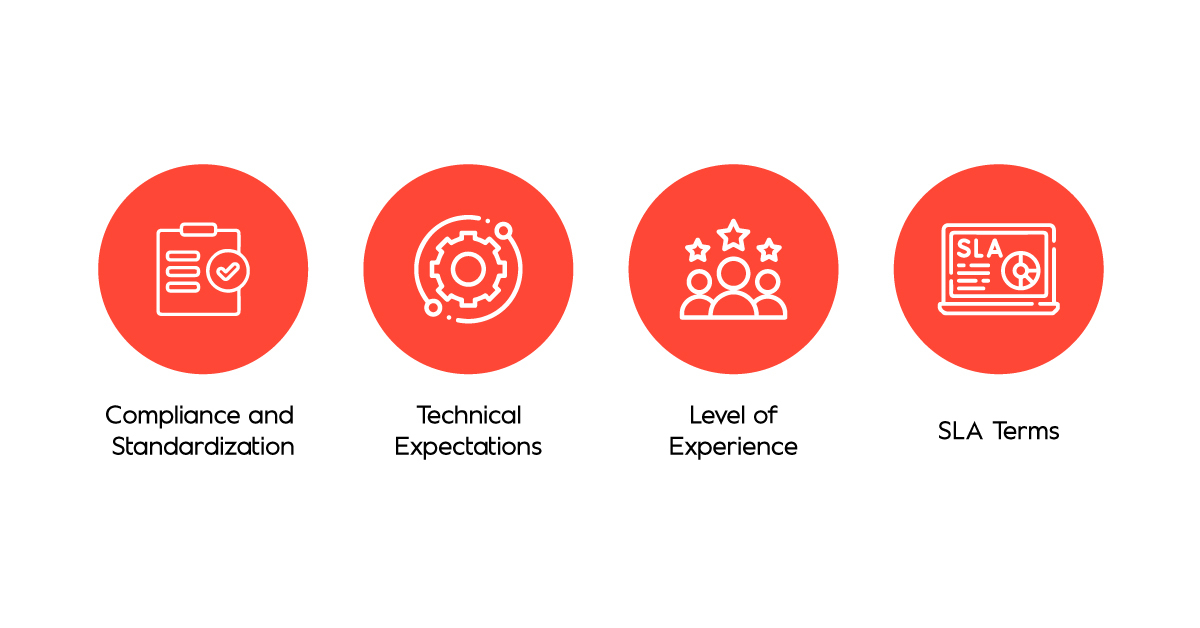If you’re on the journey of creating an innovative platform to position yourself as an industry leader, you’ll need the right support. Focusing on business development and running your own company takes up a lot of valuable time, so finding a reliable SaaS partner to create the platform itself can be just the boost you need to achieve success.
But we all know that finding someone to handle what is possibly the most important task isn’t easy. This article outlines what you need to look for when searching for the right SaaS provider and gives you a list of questions you should answer as you prepare to begin your journey.
Compliance and Standardization
The most important factor in deciding on a SaaS provider is ensuring that all their solutions are compliant and up to global standards. This is essential because it may make or break your business – a non-compliant platform can result in large fines or even a cease-and-desist declaration.However, if all your partner’s previous solutions were compliant and standardized, you can rest assured that they will handle your project with the same care and respect. You can easily check the potential provider’s history with compliance with a simple Google search. Still, it would be best to bring up this topic during your interview and ensure that the company is trustworthy.
The compliance certifications to be aware of include:
- SOC 2
- ISO 27001
- PCI-DSS
- GDPR
Also, make sure to do your research into industry-specific certifications. No healthcare platform, for example, can be available to the public without being HIPAA-compliant. A SaaS provider who is experienced in your industry should already be aware of the necessary security requirements.
Technical Expectations
Understanding the abilities of your potential provider is essential in avoiding unnecessary delays due to too much customization and items that require changing in the later phases of a project. The best way to learn about their capabilities is to look into their previous work. Most companies should have a section on their website dedicated to customer cases, but if they don’t, you should ask about them during your meeting.Both sides need to fully understand the scope of the project and each of its phases. That way, no misunderstandings or unmet expectations can hinder your success. Among other things to discuss, such as the specifics of your industry and project, make sure to take the following into account:
- Workload assessment,
- Workload migration,
- Architecture and connectivity,
- Testing and monitoring practices.
Level of Experience
Before booking a meeting with any company you would potentially partner with, take their experience into account. Although, like we already mentioned, most companies will have testimonials displayed on their websites, keep in mind that they’re highlighting only the best ones. To get a broader picture, try to find customer success stories and read in more detail about how they handled projects in the past.
It's also important to find a company that is experienced in your specific industry. For example, Valcon has worked with EdTech, PropTech, and EaaS, to list a few. This experience of working with various verticals allows us to offer valuable ideas and solutions to a versatile pool of clients.
If that sounds like something that would fit your requirements, you’re always welcome to book a free consultation.
Service-Level Agreement Terms
An SLA is a document that is signed by a service provider and their client, and it outlines the terms under which the service will be provided. When getting into a SaaS partnership, agreeing on these terms is important because it will spare you legal trouble as you progress. Also, both sides coming to an agreement before the project begins ensures smooth cooperation.
One of the first things to discuss here will be the pricing. Keep in mind that companies usually offer different levels of service for different costs, so negotiation will be possible – don’t let overly high or suspiciously low prices discourage you. Other than that, the SLA should:
- Define downtime and availability,
- List all services that will be provided,
- Limit acceptable downtimes,
- Explain methods used for reporting,
- Outline notification requirements.
Of course, these items may not all be applicable in your specific case. The terms of your SLA need to be defined by you, your SaaS provider, and preferably a legal consultant. That way, all parties can voice their concerns and ideas and ensure that they will be covered by this document.

Questions to Ask
In preparation for meetings with your potential SaaS providers, it’s important to have a clear picture of what you want your roadmap to look like, what you expect from the collaboration, and which goals you expect to reach.
In order to help you find your answers more easily, here’s a list of questions you and your team should answer before starting the interview process with potential partners.
- What are my company's needs and requirements for this project?
- What do I expect from the SaaS provider’s team?
- What is our budget for this project?
- Have we had introductory meetings with enough potential partners?
- In which area does the partner team need to have the most expertise?
- Do they have enough experience?
- How do they handle security concerns?
- What are their resilience and recovery strategies?
- Have they already worked on similar projects? How did it go?
Why Valcon?
Valcon has years of experience working with various industries as a reliable SaaS partner. Our expert teams offer the best service in terms of both building and upgrading existing platforms.
If you’re ready to embark on your business journey with a stable and trustworthy SaaS partner, reach out to us, and we’ll provide you with all the support you need.



